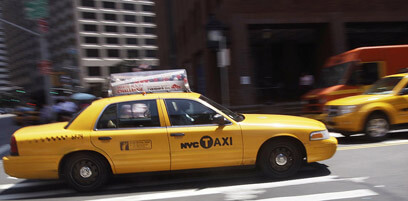By Gina Martinez
David Beier, the president of the Committee for Taxi Safety, is asking the National Credit Union Administration to work with medallion owners to make reasonable repayment plans.
NCUA assumed control of Melrose Credit Union, located at 139-30 Queens Blvd. in Jamaica, in February 2017 after the state Department of Financial Services found “unsafe and unsound conditions.”
Borrowers used Melrose to finance the purchase of New York City taxi medallions. In 2014 taxi medallions sold for up to $1.3 million, but that value has dropped to $160,000. Melrose’s loan portfolio is more than 90 percent comprised of medallion-backed loans, and medallion owners who borrowed from Melrose are being met with what they are calling unfair repayment demands. As as a result, NCUA has required many medallion loans to be rapidly repaid in full, resulting in the bankruptcy of 35 taxi industry borrowers.
Last week Beier wrote a letter to Mark McWatters, the chairman of the NCUA. In his letter he said most medallion owners are responsible and willing to pay, but the unfair high interest rates and the decrease in income as a result of new competition from Uber and Lyft are making it more difficult at this time. Beier attributed the stress of mounting financial troubles to the suicide of a Fresh Meadows taxi driver.
“This tragedy comes as Melrose has increasingly targeted taxi drivers who are struggling to pay their debt,” Beier wrote. “As the conservator charged with overseeing Melrose’s business practice, I urge NCUA to stop harassing medallion owners and instead work with them to ensure they pay their loans.”
He asked Melrose to follow other credit unions examples and modify repayment schedules.
“Other credit unions understand the extreme ramification of these actions and have been working with borrowers to modify repayment schedules in several ways, including reduced or deferred interest rates or extended amortizations,” he said. “Instead of making similar arrangements, Melrose is demanding large PRINCIPLE down payments, imposing high interest rates, seeking homes as collateral and is stripping medallions from taxis. These practices will only further exacerbate the ability of the medallion owners to repay their loans.”
Beier said there are 14,000 medallions in the city owned by about 5,000 individuals. He also emphasized a lot of medallion owners are hardworking immigrants
“They don’t have a back-up plan,” he said. “The taxi industry is an immigrant industry. These are people who came to this country, started driving taxi cabs and saved up enough to have a medallion. It was supposed to be the American dream and it’s turned into the American nightmare.”
Reach Gina Martinez by e-mail at gmart



































